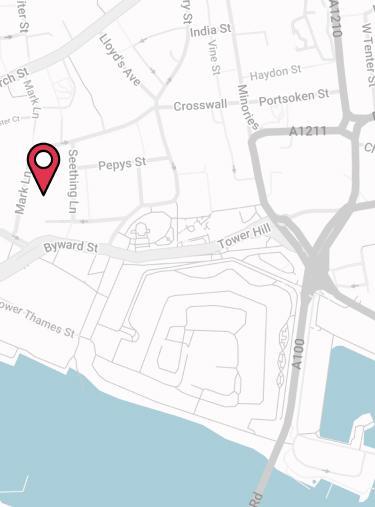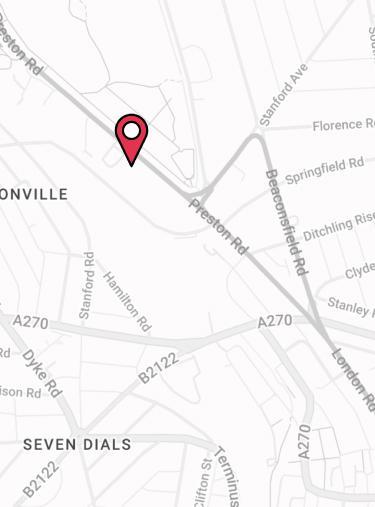
How Does HMRC Tax Salary Sacrifice Electric Car Schemes?
Salary sacrifice schemes are a great way for companies to provide extra benefits to employees on top of their net salary. Whether it’s cycle to work, a workplace pension, or in this case, an electric car, implementing salary sacrifice schemes has many benefits.
One of these is the tax savings. Employees can save between 30-60% through Business Contract Hire (BCH) compared to personal leasing. It’s not just employees who stand to benefit either, employers can too.
But, tax can be tricky to understand, especially within a salary sacrifice scheme. Employees may wonder how a scheme benefits them if their pay is reduced. So, we’re going to look at HMRC’s tax regulations and what it means for your company and your employees.
What Is A Salary Sacrifice Electric Car Scheme?
A salary sacrifice electric car scheme is a contract between an employer and their employee. Staff can sign up to the scheme, sacrifice part of their gross salary, and get a brand new electric car in return.
Here are some of the benefits:
- Affordable for employers and employees
- Expands company employee benefits package
- Boosts business reputation
- Helps to retain staff
- A brand new electric car for employees.
How Does The Government View Salary Sacrifice Car Schemes?
The UK government favours electric car schemes, which is why the tax regulations are attractive.
Electric cars benefit companies, employees and society as a whole. This goes some way to explaining why the government is supporting the switch to electric transport.
They have reduced maintenance costs, lower emissions, and help to reduce air pollution. EV salary sacrifice schemes also come highly recommended as a cost-effective way to be sustainable. People can bypass the cost barriers and help the environment. With that in mind, the government plays a large role and offers many funding incentives.
We look at some of the incentives the government has introduced below.
The Incentives Explained:
New BiK Bands For Electric Cars
Benefit in Kind (BiK) is a tax that employees pay for any non-cash benefit provided by their employer, such as an electric vehicle. This is charged to the employee via their own tax.
Every car has a BIK percentage banding that determines the rate of tax. This banding is determined by the car’s CO2 emissions and its P11D value (the vehicle list price).
The government has revised BIK rates to incentivise pure-electric vehicles. Pure EV’s now have a BiK rate of 2% which is frozen until the end of March 2025. This allows employees using a salary sacrifice scheme to get a tax break as the rate is so low.
To compare, BiK rates for petrol and diesel cars can reach up to 37%!
Government Grants
Many grants are now available to make electric cars more affordable. These support costs and help individuals save money.
- EV Chargepoint Grant – funding towards charging point installation at home
- Workplace Charging Scheme (WCS) – supports businesses with upfront cost of charger installation
- On-street Residential Chargepoint Scheme (ORCS) – helps local authorities install on-street chargers.
These grants are supplied by The Office of Zero Emissions Vehicles (OZEV).
National Insurance Savings
As employees sacrifice their salary for a brand new car, the payment is taken before National Insurance Contributions (NIC). This means they save on these contributions, and so does the employer.
These tax savings are improving the financial appeal of salary sacrifice schemes. Even more so when you consider the recent rise in National Insurance.
Tax Benefits Of Salary Sacrifice Electric Car Schemes For Employers
There are many tax benefits for companies within a salary sacrifice scheme. These include:
Allowable Tax-Deductible Expenses
Electric cars have a low Benefit in Kind tax since they produce no CO2 emissions. This is the employee’s responsibility to pay as it isn’t included in their salary sacrifice monthly payment. But, as an employer, you still have to pay National Insurance on their BiK tax deductions.
There are tax savings to be made here though. Salary sacrifice schemes are known as an allowable tax-deductible expense. This reduces how much you’ll pay in Corporation Tax, offering great savings for your company.
Pay Less National Insurance (NI)
As an employer, you pay NI on each gross salary you give to staff. But some employee benefits are exempt from these deductions, including a salary sacrifice car scheme. You don’t have to pay NI on the amount your employee sacrifices for the car as it’s a benefit.
While there isn’t a direct tax contribution, as we noted earlier, the employer pays Class 1A National Insurance on the Benefit in Kind tax paid. This cost is based on the vehicle’s P11D value and its Benefit in Kind rate.
Recover VAT
The employee will pay VAT within their gross salary sacrifice payments. As a company, you may be able to reclaim 50% of the cost and pass it back to the employee to lower their rental price. The more staff that sign up to the scheme, the higher the VAT savings.
A business can save more on VAT if employees charge their electric car on the employer’s premises. This is only for business mileage though. Also, if the vehicle is just used for personal use, VAT on electricity costs can’t be reclaimed.
Tax Benefits Of Salary Sacrifice Electric Car Schemes For Employees
A salary sacrifice electric car scheme is appealing to employees because of the low tax implications. This includes:
Road Tax Exemptions
Also known as Vehicle Excise Duty (VED), zero-emissions vehicles are exempt from Road Tax. Even if the car is worth more than £40,000, it is still excluded from taxation. This is because Road Tax is calculated by the vehicle’s CO2 emissions, and zero-emissions vehicles emit zero carbon.
This means that by switching to a fully electric car, employees will instantly make a saving as no road tax is payable.
Low Benefit in Kind (BIK) Rates
The current BiK rates set by the government start at 2% for electric cars. This can increase depending on how much CO2 a car emits. But even so, compared to the BIK rate for a petrol or diesel car (which can be up to 37% of the P11D value) the cost for electric vehicles is significantly lower.
This formula can be used to calculate the rate: (P11D value) x (BiK band) x (income-tax bracket) = Benefit in Kind tax.
Below is an example of the BiK tax payable for an electric car compared to a petrol vehicle. We’ve based this on a 40% tax rate payer for the tax year 2025/26.
Estimated BiK Payments | Vehicle | 🔋 Renault Zoe Electric | ⛽️ Fiat 500 1.0 Hybrid Pop |
|---|---|---|
P11D Value | £31,940 | £14,000 |
Emissions | 0 gCO2 / km | 114-116 0 gCO2 / km |
BiK Rate | 2% | 27% | BiK Payable | £21.29 a month | £126 a month |
Reduced Income Tax
Income tax payments are linked to an employee’s salary. So, the higher an employee’s gross annual salary, the more tax they pay.
As the monthly lease cost comes from the employee’s wage before tax, salary sacrifice schemes reduce taxable income. This is a huge tax benefit for employees. If they were to lease a car without a salary sacrifice scheme the monthly lease payments would increase and their take home pay would decrease further.
Reduced National Insurance
The same goes for National Insurance Contributions. Having a lower taxable income means employees can save on NI too. This is because they won’t get charged National Insurance on the cost of the monthly lease.

Like with tax savings, how much NI an employee saves through a salary sacrifice scheme will depend on how much they earn and the tax bracket they fall into.
Joseph Toft
Employee Benefits Consultant
VAT Savings
VAT is added to the lease of an electric vehicle and included within the employee’s monthly payments. The good news for your company is that you can claim back 50% and return it to the employee to lower their salary sacrifice.
But if the company isn’t VAT registered, the VAT has to be paid. In this situation, this is the responsibility of the employee.
It’s also useful to know that if an employee charges their electric car at work, they can claim back the VAT costs of the electricity. This is only for business mileage though, so employees will need to keep a record of this to claim VAT back.
How Much Tax Can Be Saved Through A Salary Sacrifice Car Scheme?
We know that tax can be a complex and confusing topic, so here’s a table to show you how much tax can be saved through a salary sacrifice electric car scheme. We’ve based our example on the following:
- An employee earning £30,000
- Leasing a Mazda MX-30 Hatchback through Octopus Electric Vehicles
- A lease period of 36 months
- Annual mileage of 10,000
- With full insurance, servicing and maintenance included in the salary sacrifice option.
EV Salary Sacrifice Vs. EV Personal Lease | Lease Type | 🏢 Salary Sacrifice | 🧍 Personal |
|---|---|---|
Lease Cost | £555 | £555 |
Income Tax Saving | -£111 | £0 |
National Insurance Savings | -£44.40 | £0 |
Benefit in Kind Tax (BiK) | +£10 | £0 | Total Monthly Cost | £409.60 | £555 | £145.40 saved through salary sacrifice 🤩 |
As you can see, leasing a car via salary sacrifice can save employees a significant amount in tax and national insurance compared to if they were to get a personal lease.
Bear in mind that the example of a personal lease doesn’t factor in initial rental costs or ongoing maintenance.
Understanding the tax benefits associated with a salary sacrifice scheme can be confusing, so it’s always best to speak with a specialist if you’re unsure.
Compare Employee Benefits Quotes And Get Specialist Advice
Providing a comprehensive employee benefits package for your team can be a bit challenging. There’s a lot to consider and so many perks you can offer.
We can do all the hard work for businesses of all sizes in the UK, including yours, to help companies carry on business as usual.
Compare employee benefits quotes and get specialist advice from our team, and start introducing perks to your staff.
Why Speak to Us?
Employee benefits can be a headache. But our specialists do this day-in, day-out, offering first class service when you need it most. Here’s why you should talk to us:
- Award-winning independent employee benefits consultants, working with leading UK insurers and benefit providers
- Assigned specialist on hand to help – every step of the way
- 4100 and growing independent client reviews rating us at 4.92 / 5
- Authorised and regulated by the Financial Conduct Authority. Find us on the financial services register
- Claims support when you need it most.
Contact Us
125-135 Preston Road
Brighton
BN1 6AF
Cookies
Drewberry™ uses cookies to offer you the best experience online. By continuing to use our website you agree to the use of cookies including for ad personalization.
If you would like to know more about cookies and how to manage them please view our privacy & cookie policy.







